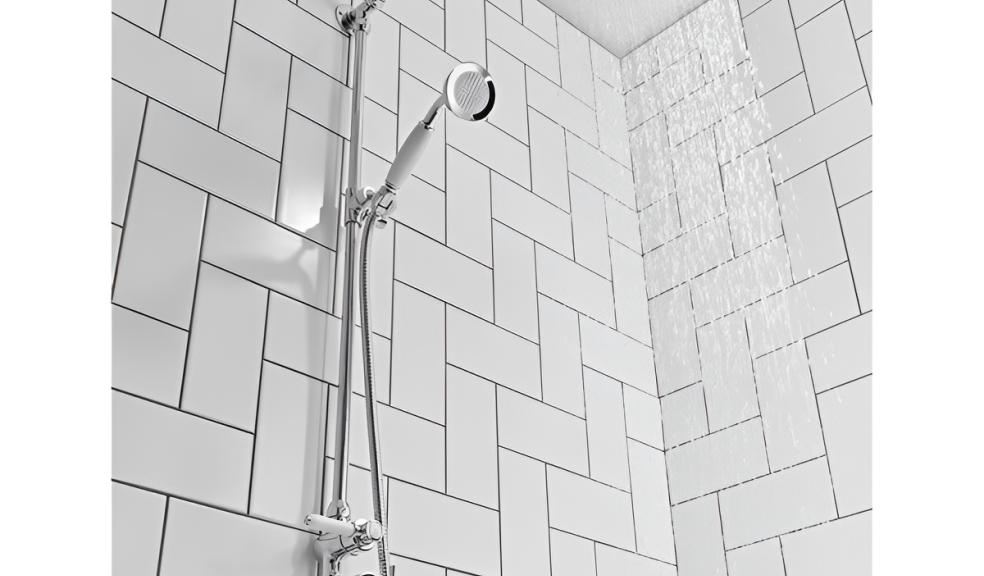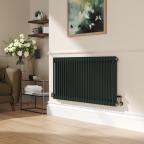
Over a quarter of Brits don’t know their water hardness: Here’s how it can affect your health and wellbeing
Over a quarter of Brits (26%)1 admit they don’t know the hardness of the water in their homes and the effects it can have.
In a national survey from leading bathroom supplier Sanctuary Bathrooms, Brits were unable to identify whether their homes are supplied with hard or soft water. Seven in 10 Brits were also unaware of the effects water hardness can have on their hair (68%)1, and nearly three in five didn’t know that the hardness of their water could compromise their skin barrier (57%)1.
Although a quarter of UK residents claim that their bathing preferences help them to relax and destress1, Brits could be compromising their health and wellbeing with their lack of knowledge around water hardness.
The effects of hard water on hair and skin can be profound. The minerals in hard water, such as elevated levels of calcium and magnesium, can leave a residue on our skin, causing dryness, irritation, and exacerbating conditions such as eczema. The chemicals present in hard water can disrupt the skin barrier and clog pores, leading to further skin issues.
Similarly, when hard water interacts with shampoo, it forms a film on the hair, making it difficult to rinse out and leaving the strands feeling rough and dull. Over time, this buildup can lead to breakage and damage.
Although it seems like soft water has only benefits, for individuals living in areas with soft water, enjoying its benefits comes with an important health consideration. Elevated sodium levels in soft water pose a notable risk for high blood pressure due to the higher levels of sodium. Moreover, households using soft water may encounter other undesirable effects, such as flattened and greasy hair and a faint salty taste in their drinking water.
There are telltale signs that can help determine your water type. If you notice a filmy residue on your hands after washing, accompanied by the need for prolonged rinsing, or if you have low water pressure caused by mineral deposits in your water pipes, this suggests your home is supplied with hard water. Alternatively, if your home has good water pressure, your tableware is spotless after washing up, but you notice a slight salty taste to your drinking water, this suggests you live in a soft water area.
It can also wreak havoc on our cleaning routines. Hard water is recognised for its tendency to cause limescale buildup on taps and shower heads. Nonetheless, there are numerous methods to address this issue. One effective approach involves using white vinegar to eliminate limescale. To execute this method, simply detach the shower head or tap, soak it overnight in a blend of warm water and white vinegar, then rinse and reattach. Alternatively, for a long lasting solution, consider upgrading your shower heads and taps.
To combat the effects of hard water, it's essential to remove the hardness from your water. One effective solution is through water softening systems. These systems work by exchanging calcium and magnesium ions with sodium ions, resulting in softer water that is gentler on both hair and skin. Additionally, using clarifying shampoos and treatments can help remove mineral buildup from hair, restoring its natural shine and vibrancy.
Soft water, while beneficial in some ways, can also pose certain challenges. One common issue is its tendency to leach minerals like calcium and magnesium from plumbing systems, which can lead to corrosion and premature deterioration of pipes and fixtures. Additionally, soft water may not effectively remove certain contaminants, such as lead or copper, from the water supply, potentially posing health risks.
To address these issues, individuals can take several actions:
-
Install a water softener with a bypass valve, allowing them to bypass the softener for drinking water taps to ensure access to mineral-rich water
-
Complete regular maintenance and monitoring of water softener systems are to prevent over-softening and ensure optimal performance.
-
Using water filtration systems specifically designed to remove contaminants can help mitigate health concerns associated with soft water
James Roberts, Director of Sanctuary Bathrooms, summarises: “Over a quarter of Brits profess to not know what the hardness of water in their area is, and this could be higher when you factor in a proportion of those stating what they think the water in their area could actually be wrong too.
“This may mean a lot of people not noticing the effect that their water has on them while compromising certain elements of their health and wellbeing. We always want people to have the best and most enjoyable bathing experiences, particularly when Brits admit to showering and bathing helping them to relax and destress, so using the right products and solutions in line with the water type can only enhance this.”
“As specialists in bathroom functionality, we recognise the significance our bathing routines have for our health. To ensure healthy, enjoyable bathing experiences it’s essential to use the right products, and source solutions that address diverse water quality needs.”
For more information on Brits knowledge of soft and hard water, please visit: https://www.sanctuary-bathrooms.co.uk/journal/hard-vs-soft-water-do-you-know-your-water-type









